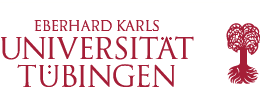Visual information processing in perception and action
Winter term 2019/20
Guests are welcome! (i.e., if only a single talk is of interest to you, please feel free to stop by for this specific session).
- 2019-10-18 Fri 14:15-16:00
- postponed
- 2019-10-25 Fri 14:15-16:00 Sand 6 / F116
- internal meeting
- 2019-11-08 Fri 14:15-16:00 Sand: B305.1
- Nathalie Minuth: Entwicklung einer Tablet-App zum Messen des impliziten Lernens für die neuropsychologische Diagnostik (Results-talk for MSc-thesis)
- 2019-11-15 Fri 14:15-16:00 Sand: A104 Note: different room!
- Dr. Catarina Amado: Conscious vs. unconscious information processing: Behavioral results for processing of stimuli in periphery.
- 2019-11-22 Fri 14:15-16:00 Sand: B305.1
- Iris Zerweck: Conscious vs. unconscious information processing: Behavioral results for processing of numbers and other stimuli.
- Christian Hepting: Planning talk for BSc-thesis.
- Planning of TeaP, VSS, ASSC abstracts.
- Journal Club: Dr. Catarina Amado: Unconscious priming dissociates 'free choice' from 'spontaneous urge' responses (Tortosa-Molina & Davis, Consciousness and cognition, 2018)
- 2019-11-29 Fri: internal
- Two PhD-defenses 11:30 and 13:00
- 2019-12-06 Fri 14:15-16:00 Sand: B305.1
- Sascha Meyen: The Interplay between Signal Detection Theory (SDT), Information Theory (IT), and Confidence Weighted Majority Voting (CWMV)
- Journal Club: Iris Zerweck: Response control by primes, targets, and distractors: from feedforward activation to controlled inhibition (Schmidt, F. & Schmidt, T., Psychological Research, 2019)
- 2019-12-13 Fri 14:15-16:00 Sand: B305.1
- Dr. Catarina Amado: Conscious vs. unconscious information processing: fMRI results for processing of numbers.
- Journal Club: David Wiedner: Guo, C., Pleiss, G., Sun, Y., & Weinberger, K. Q. (2017). On calibration of modern neural networks. In Proceedings of the 34th International Conference on Machine Learning, 70, 1321-1330.
- 2019-12-20 Fri 14:15-16:00 Sand: B305.1
- David Wiedner: Confidence Ratings in Neural Networks (planning talk for B.Sc. thesis)
- Journal Club: Christian Hepting: Why the P3b is still a plausible correlate of conscious access? A commentary on Silverstein et al., 2015 (Naccache, L., Marti, S., Sitt, J.D., Trübutschek, D., & Berkovitch, L., Cortex, 2016)
- 2020-01-10 Fri 12:00-18:00 Sand: F119 + A103
- PhD-day computer science department: PhD students present their projects.
- 2020-01-17 Fri 14:15-16:00 Sand: B305.1
- Catarina Amado, Iris Zerweck, Sascha Meyentalk: Practice for GK-doctoraly symposium
- Journal Club: Sascha Meyen: Evaluating Effect Size in Psychological Research: Sense and Nonsense (Funder, D. C. & Ozer, D. J., Advances in Methods and Practices in Psychological Science, 2019)
- 2020-01-24 postponed (bec. 1st GK-doctoral students symposium on Cognitive Science)
- 2020-01-31 Fri 14:15-16:00 Sand: B305.1
- Iris Zerweck: Conscious vs. unconscious information processing: EEG results for processing of numbers.
- Sascha Meyen: Indirect task advantage: Next steps.
- 2020-02-07 Fri 16:15-18:00 Sand: room: A104 Note: different time and room!
- Christian Hepting: Results talk for BSc-thesis.
- Florian Friedrich: Results talk for BSc-thesis.
- Your talk:
-
When preparing a talk for our colloquium, please:
- Practice your talk!
- Print the final version of your talk once on paper (6 slides per page) and bring it to the colloquium.
- Send a PDF-file (and if available a PowerPoint file) of the final version of your talk by email to V. Franz before the talk. Details for the PDF-file: 1 slide per page and make sure that you do NOT create separate pages for each step of the animations.
- Adhere to the time-limits during your talk. Practice that!
- Present data as graphs (supplemented but not supplanted by numerical statistics).
- Provide your name etc. at the title-slide.
- Practice your talk!
- Journal club:
- 10 min presentation (please make sure you adhere to these time-limits!). In the journal club a member of our group present an influential, scientific article relevant to our current work. Articles should typically be recent (e.g., 3-5 years), but could also be older if of special interest. Articles will be available at our file-server (with the path being e.g., EC-STORE/literature/articles/journal-club-WS1920), please ask a member of our group if you do not know how to access those. Please make sure that a meaningful reference (containing title, author, year, journal) is presented at this web-page (either by you or by sending an email to V. Franz) and that the full APA-reference in the correct APA-formatting is present on the title-slide of your presentation.
Related colloquia
Here is an (uncomplete) quick list of related other colloquia in Tübingen:- Forschungskolloquium Kognitionswissenschaft
- Neurokolloquium & Neurobiologisches Montagskolloquium
- Seminar Series of Tübingen's Max-Planck Campus

